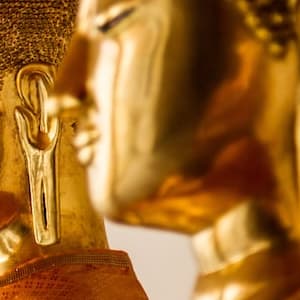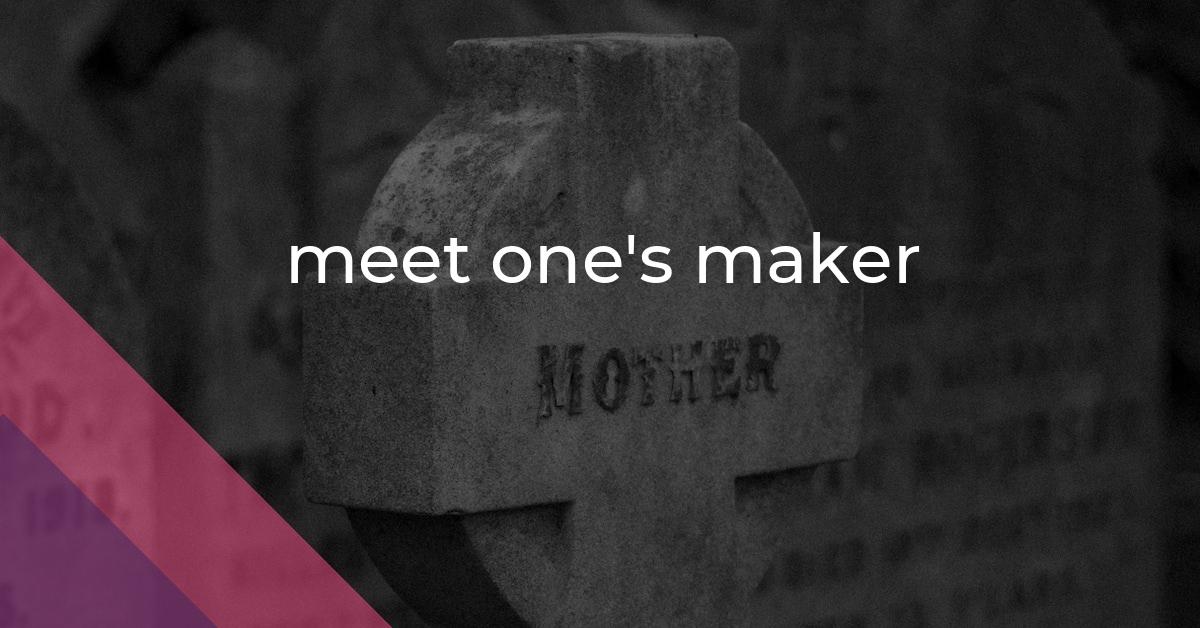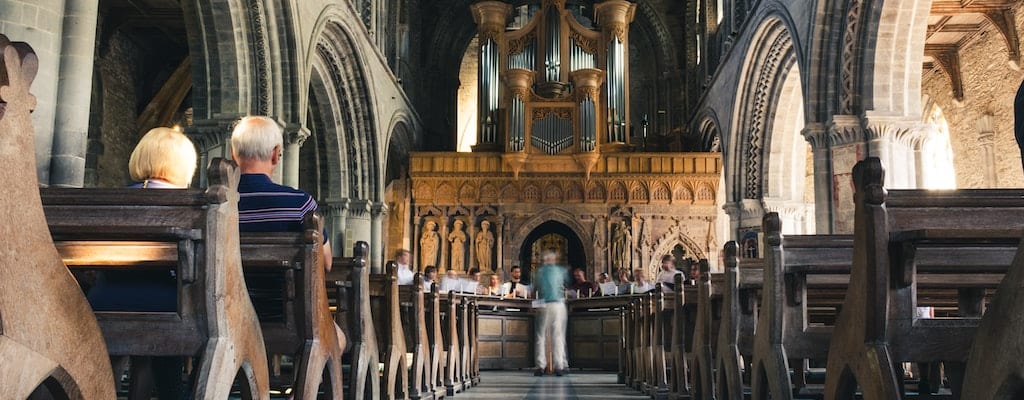meet one’s maker: Idiom Meaning and Origin
What does ‘meet one's maker’ mean?
The idiom "meet one's maker" means to die or to face death and meet God as the creator. It implies the belief that after death, a person will be judged by their actions in life.

Idiom Explorer
The idiom "turn in one's grave" means to experience strong disapproval or disappointment, symbolically imagined as the deceased person's reaction to a particular event or situation.
The idiom "reap what one sows" means that a person will face the consequences of their actions, whether positive or negative.
The idiom "put to the sword" means to kill or execute someone with a sword, often after a battle or as a form of punishment.
The idiom "pass away" means to die, typically used in a more gentle or euphemistic way. It implies the transition from life to death, suggesting a peaceful or dignified departure.
The idiom "one's days are numbered" means that someone is likely to die soon or that their life will come to an end in the near future.
The idiom "meet a sticky end" means to have an unpleasant or unfortunate death or ending to a situation.
The idiom "matter of life and death" is used to convey a situation or decision that is extremely urgent, critical, or important, often with serious consequences.
The idiom "make up one's mind" means to make a decision or come to a conclusion about something.
The idiom "make the cut" means to meet the required standard or qualification, especially in a competitive situation.
The idiom "make something of oneself" means to achieve success or become accomplished in a particular field, often through hard work and determination.
Tales of Eternity
The idiom "meet one's maker" is commonly used in English to mean "to die" or "to come to an end." It is often used in a religious or spiritual context, referring to meeting God or a higher power after death.
The phrase has its roots in Christian theology and can be traced back to the idea of facing judgment and being accountable for one's actions in the afterlife.
The verb "meet" in this idiom implies encountering or coming face-to-face with someone, suggesting a personal and unavoidable meeting. The word "maker" refers to a creator or someone who has brought something into existence.
In the context of this idiom, the "maker" is often interpreted as a supernatural being, such as God or a higher power.
The idiom "meet one's maker" is related to the idiom "meet a sticky end". This idiom is used to describe someone meeting an unfortunate or unpleasant end to their life. It implies that the end was unexpected or came as a result of their own actions. It adds a sense of uncertainty and unpredictability to the concept of death, suggesting that one's fate can be difficult and unpleasant.
The idiom "one's days are numbered" is also related to "meet one's maker". This idiom indicates that someone's life is coming to an end or that their death is imminent. It implies that there is a limited amount of time left for someone to live and that their fate is already determined. It adds a sense of inevitability and finality to the concept of death, suggesting that one's life is ultimately finite.
Lastly, the idiom "die the way one lived" is related to "meet one's maker". This idiom suggests that the manner in which someone dies reflects their character or the way they lived their life. It implies that someone's actions and choices in life will ultimately determine their fate and the circumstances surrounding their death. It emphasizes the idea of personal responsibility and accountability for one's actions, both in life and in death.
The origin of the idiom can be found in religious texts, specifically in the Bible. The concept of meeting one's maker is rooted in the belief that after death, individuals will face judgment and be held accountable for their actions during their lifetime.
This belief is central to various religions, including Christianity. It is a fundamental part of the faith, shaping the way believers understand life, death, and the afterlife.
Though the exact origin of the idiom is difficult to pinpoint, its usage can be traced back centuries. The phrase "meeting one's maker" has appeared in literature, poetry, and religious texts throughout history.
It has become a widely understood and accepted idiom in the English language, used to convey the idea of death or the end of something. Its longevity and continued usage are a testament to its significance and relevance in human understanding of mortality.
Over time, the idiom has also taken on a figurative meaning, extending beyond its religious roots. It can now be used in a more general sense to convey the idea of facing the consequences of one's actions, whether in this life or the next.
While the primary meaning is still closely tied to the concept of death and afterlife, the idiom has evolved to encompass a wider range of interpretations.
For example, in the idiom "meet a sticky end", the phrase implies that the end or outcome of a situation is unpleasant or unfavorable. It suggests that someone may face negative consequences or a difficult fate as a result of their actions or circumstances.
In the idiom "one's days are numbered", the phrase indicates that someone's life is drawing to a close or that their time is running out. It emphasizes the finite nature of life and the idea that one's fate is already determined.
Lastly, in the idiom "die the way one lived", the phrase suggests that someone's death reflects their character or the choices they made in life. It underlines the connection between one's actions and their ultimate fate, highlighting the importance of living in alignment with one's values and convictions.
The idiom "meet one's maker" is deeply rooted in religious belief and conveys the idea of encountering a higher power at the end of one's life.
It has its origins in Christian theology and can be traced back to the concept of facing judgment and being held accountable for one's actions.
While its primary meaning is tied to death and the afterlife, the idiom has also gained a figurative sense, representing the consequences of one's actions in this life as well.
The phrase continues to be widely used and understood, carrying with it a sense of finality and the inevitability of facing one's ultimate fate.
Example usage
Examples of how the idiom "meet one's maker" can be used in a sentence:
- After a long battle with illness, he finally met his maker peacefully in his sleep.
- The reckless driver was speeding down the highway and it was only a matter of time before he met his maker.
- As a devoted believer, she lived her life with the expectation of eventually meeting her maker and finding eternal peace.
The idiom "meet one's maker" is commonly used to refer to the moment of death or meeting with a higher power (usually in a religious context).
More "Death" idioms



